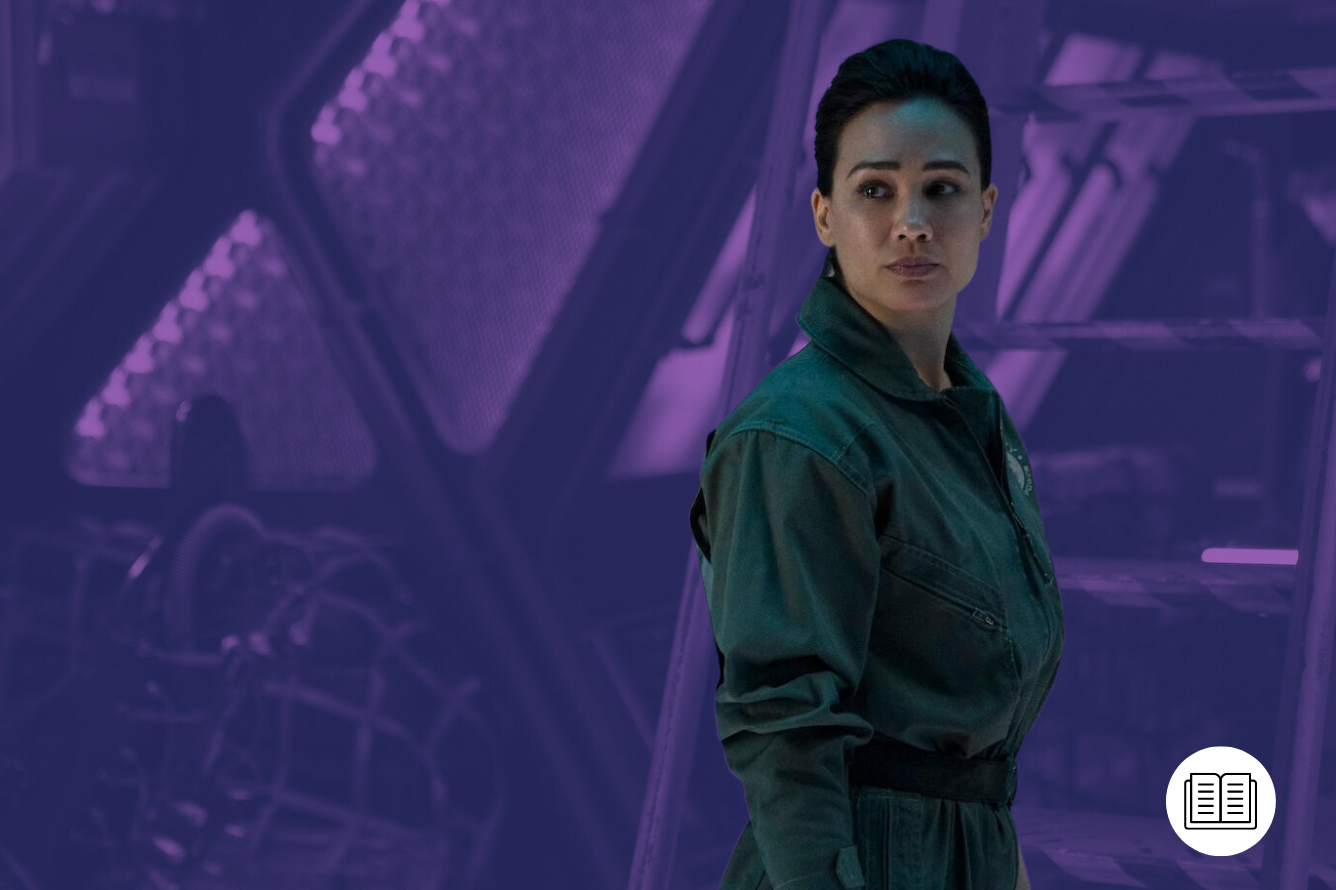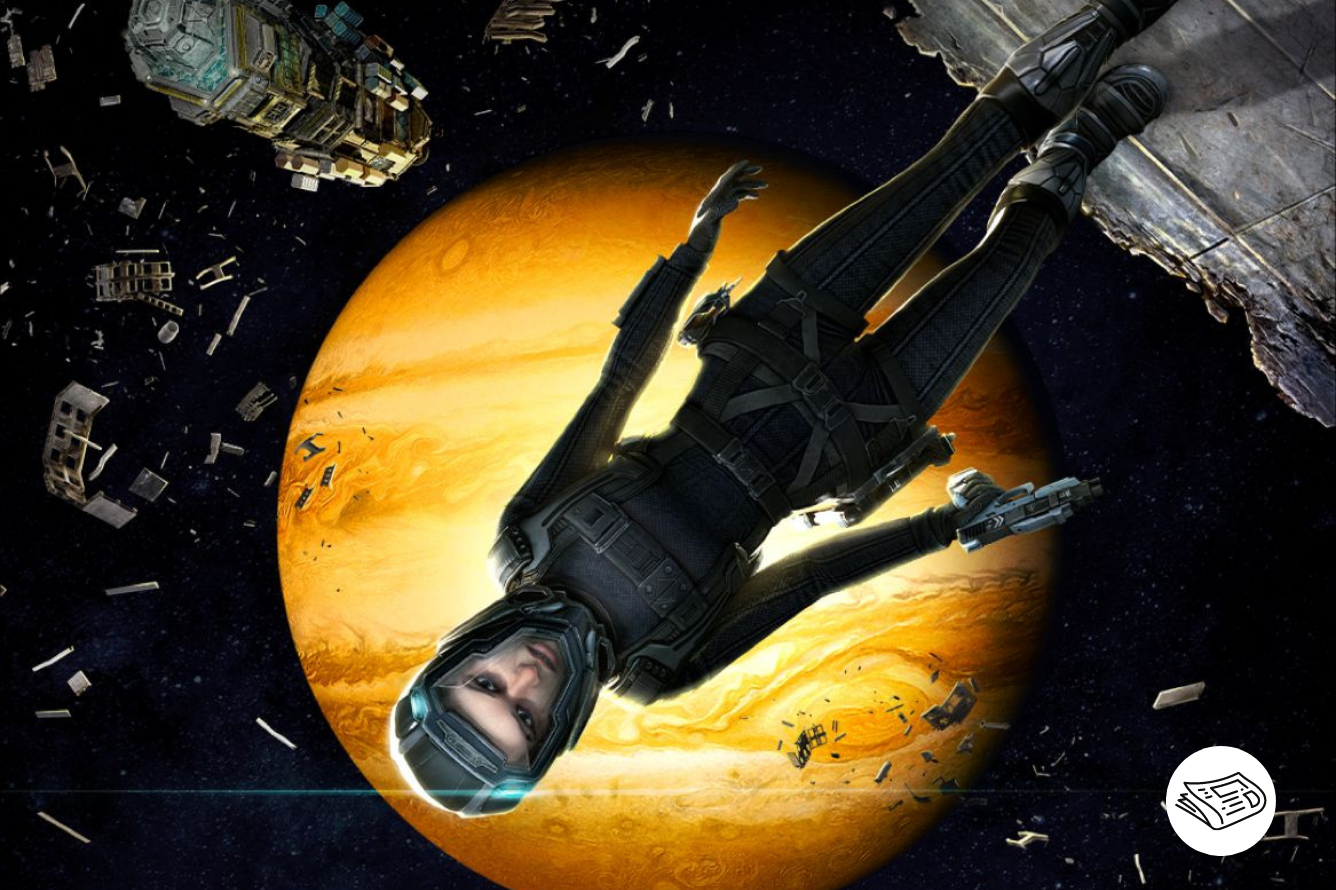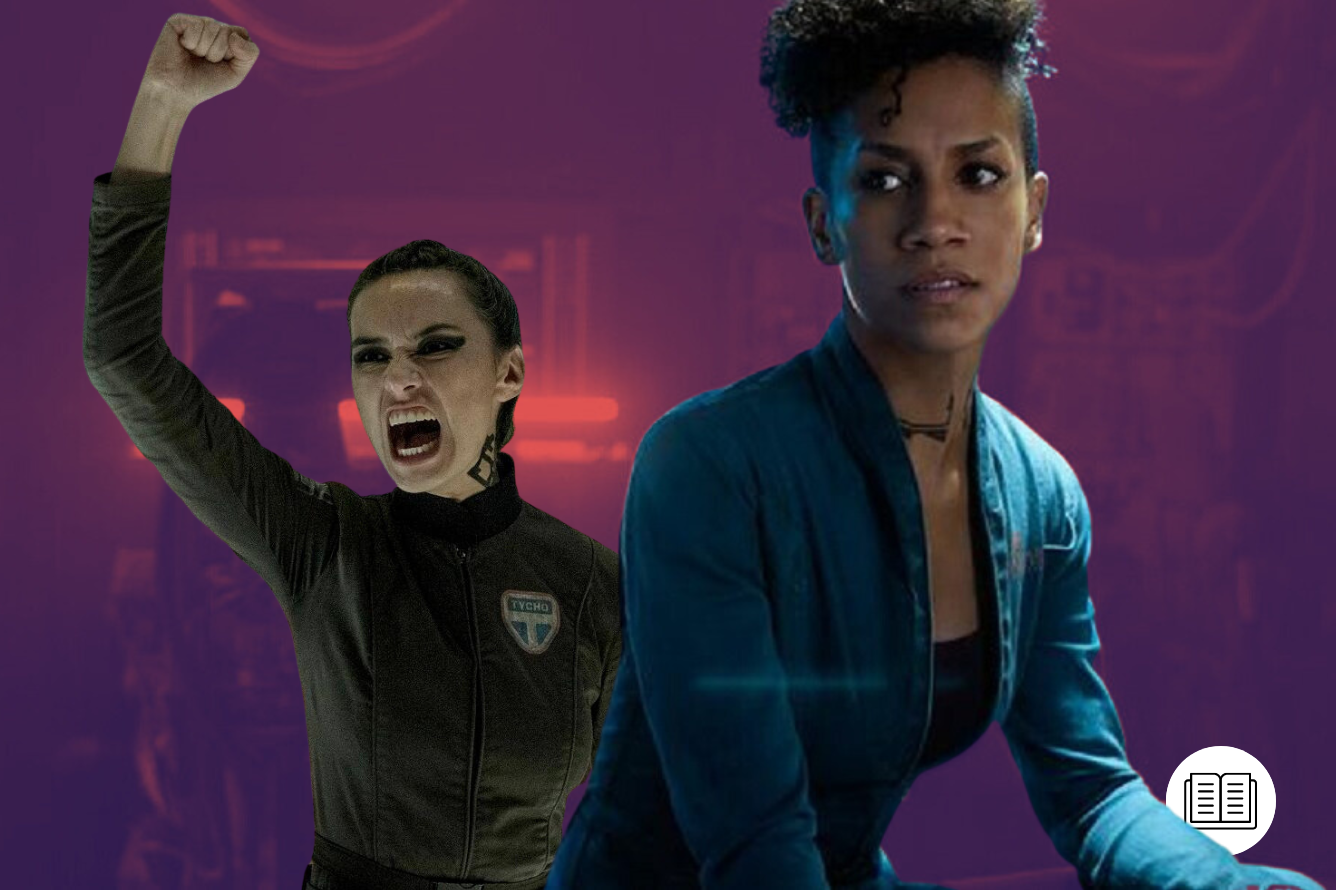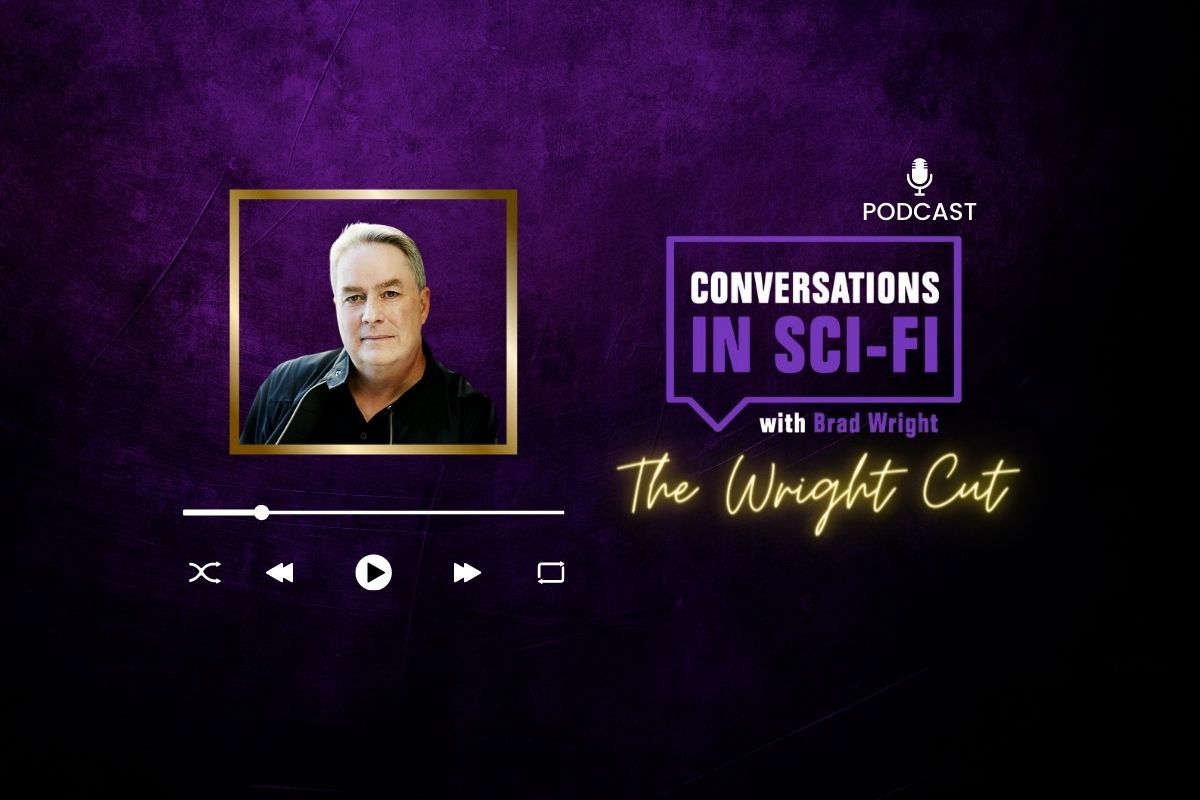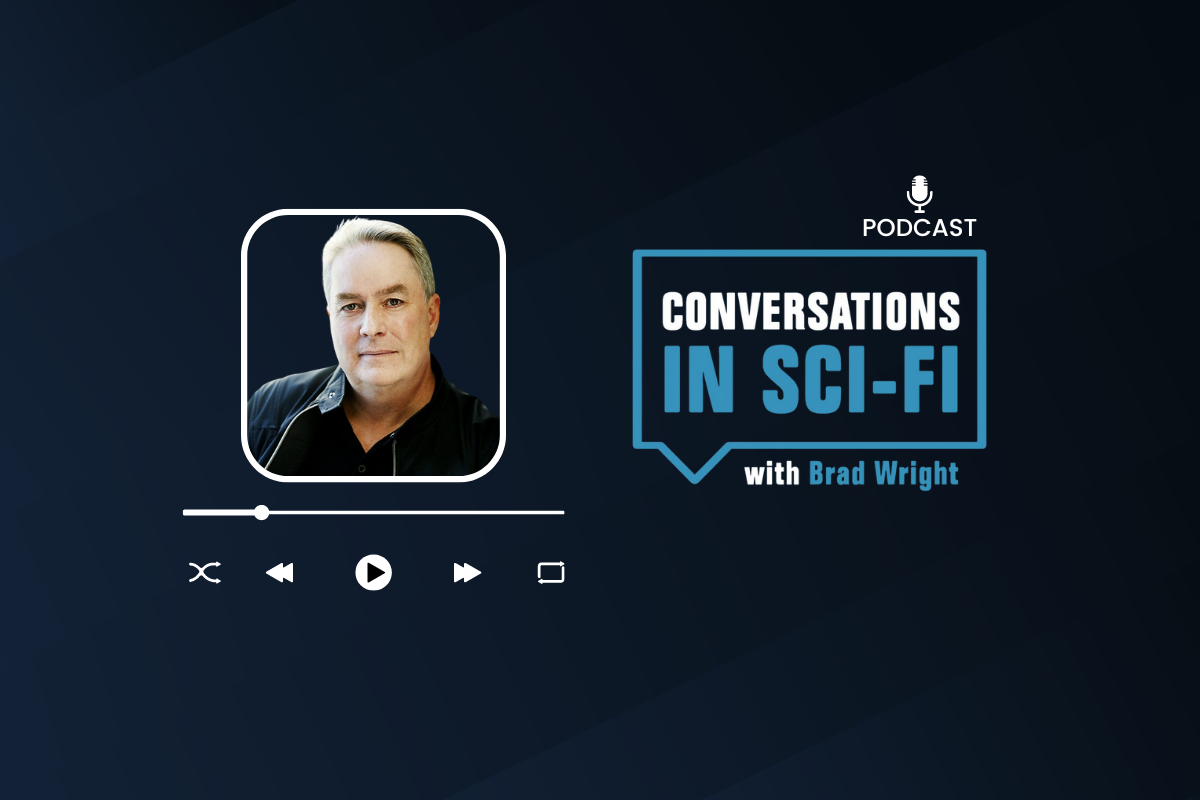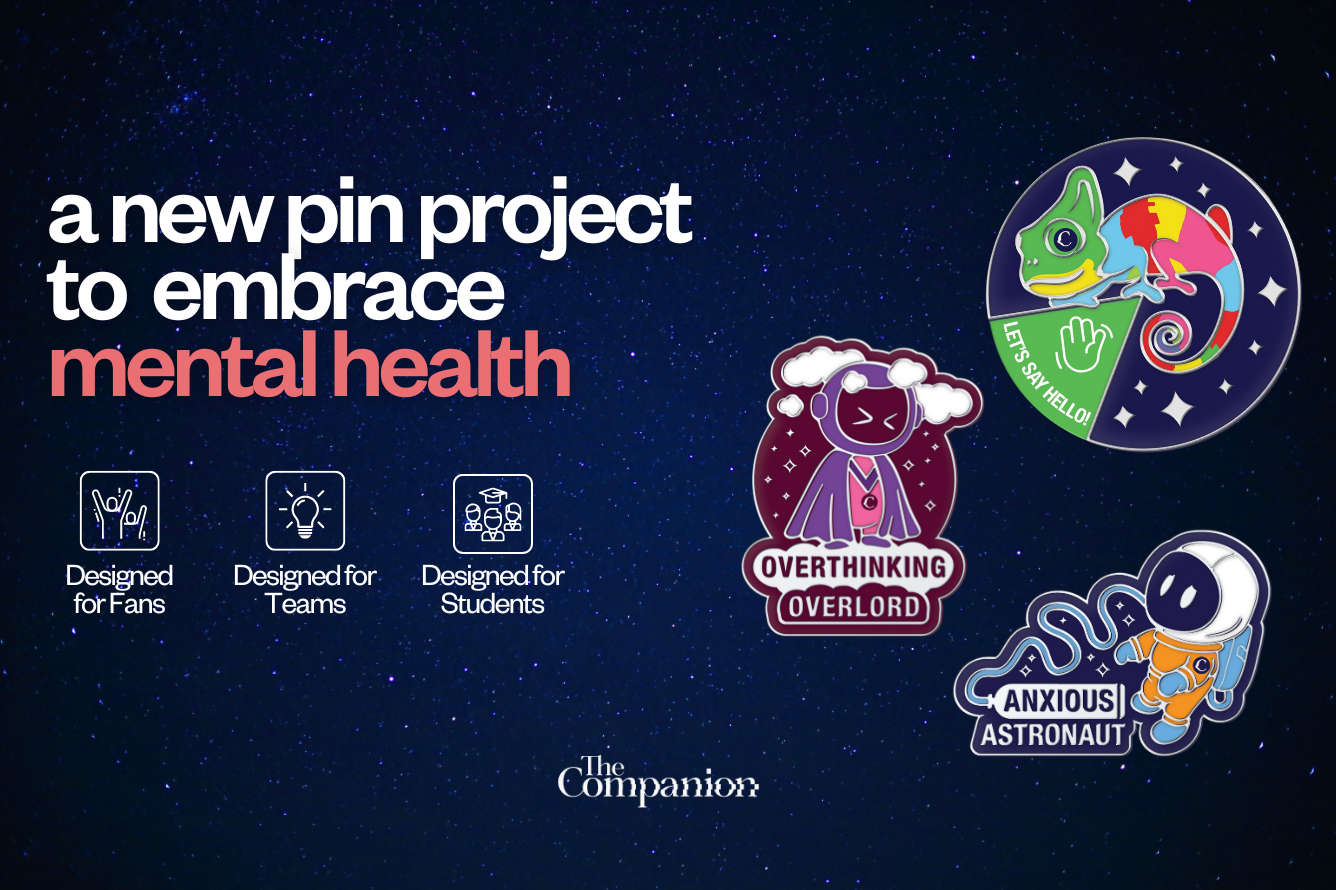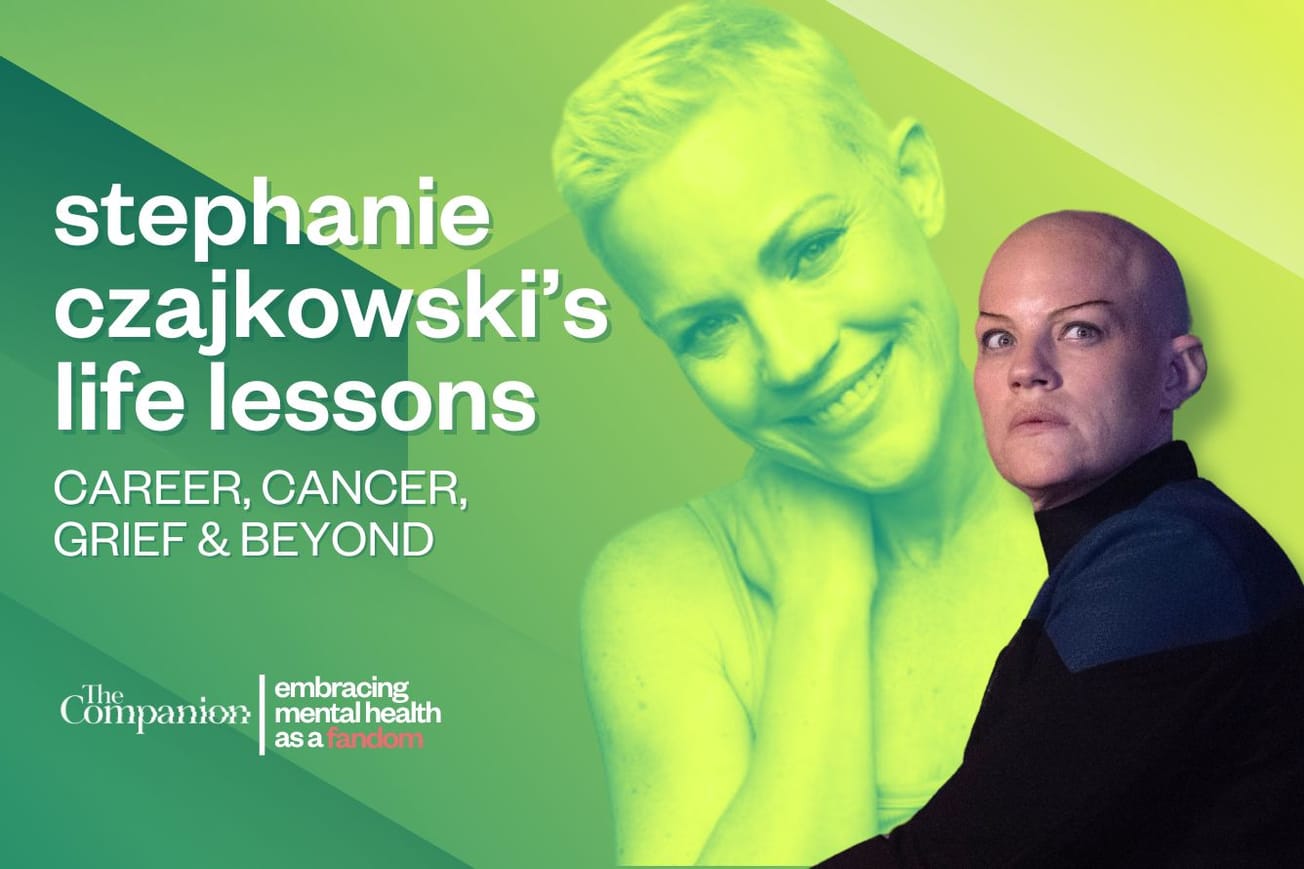Clarissa Mao is almost revolutionary. First appearing in The Expanse Season 3 on Syfy and returning to the core cast for Season 5 and 6 on Amazon Prime Video, it’s easy to overlook the subtle, almost mundane, brilliance of the character in a show that spoilt us weekly when it came to its ensemble.
That the rise of The Expanse had as its wingman the fall of writer and director Joss Whedon over accusations of bullying is an appropriate one in a very specific sense. The overdue reappraisal of Whedon’s writing – particularly his writing of women – is countered at every turn by the diverse, nuanced, and compelling cast of James S. A. Corey’s universe.
“They have so many really powerful women in real life,” explains Nadine Nicole, the woman behind Clarissa Mao, over Zoom. “Like all of those women on the show, Cara [Gee, Camina Drummer], Dominique [Tipper, Naomi Nagata], and Frankie [Adams, Bobbie Draper] and Shohreh [Aghdashloo, Chrisjen Avasarala] – I’m just obsessed. I love all of them and not only in real life but on screen, they’re just such badass warriors.
“They don’t revolve around men. They might have some male characters they’re entwined with but they are their own independent women. The way that they are written is rare.”
Women as Weapons in Science Fiction
Identified by Michael Marano in his 2007 essay ‘River Tam and the Weaponized Women of the Whedonverse’, the Weaponized Woman is a trope so vintage that it followed Whedon from his Alien: Resurrection (1997) screenplay and all the way into some spectacularly gross Black Widow dialogue in Avengers: Age of Ultron (2015). This character is a victim and survivor of male abuse, a tool of male ambition, and a fetish for male desire, both physically intimidating and emotionally malnourished. Her arc consists of a fight for identity and agency, one that can never be truly successful lest the three-ring circus loses its star turn.
It was a particularly dreary fate for Sigourney Weaver’s Ellen Ripley given everything the character represented, as Whitney Anspach notes in her 2001 thesis ‘Study of the Gender Representations within the Aliens Series’: “Never before has the lack of respect for Ripley or any other female in the Alien series been taken to the extreme of overt discussions of sexual intercourse.”
With the freedom to conjure up his own worlds on the small screen, Whedon gave us a litany of damaged vampire slayers in Buffy, the literal blank slate of Echo (Eliza Dukshu) in Dollhouse, and Firefly (2002)’s telepathic murder waif River Tam (Summer Glau).
It wasn’t Whedon alone who plowed this furrow, but it was his creativity and wit that entrenched the concept in our TV schedules. Of his Weaponized Women, it’s River Tam who is the most relevant to The Expanse, not least because she forms part of a ragtag crew prowling the spaceways.
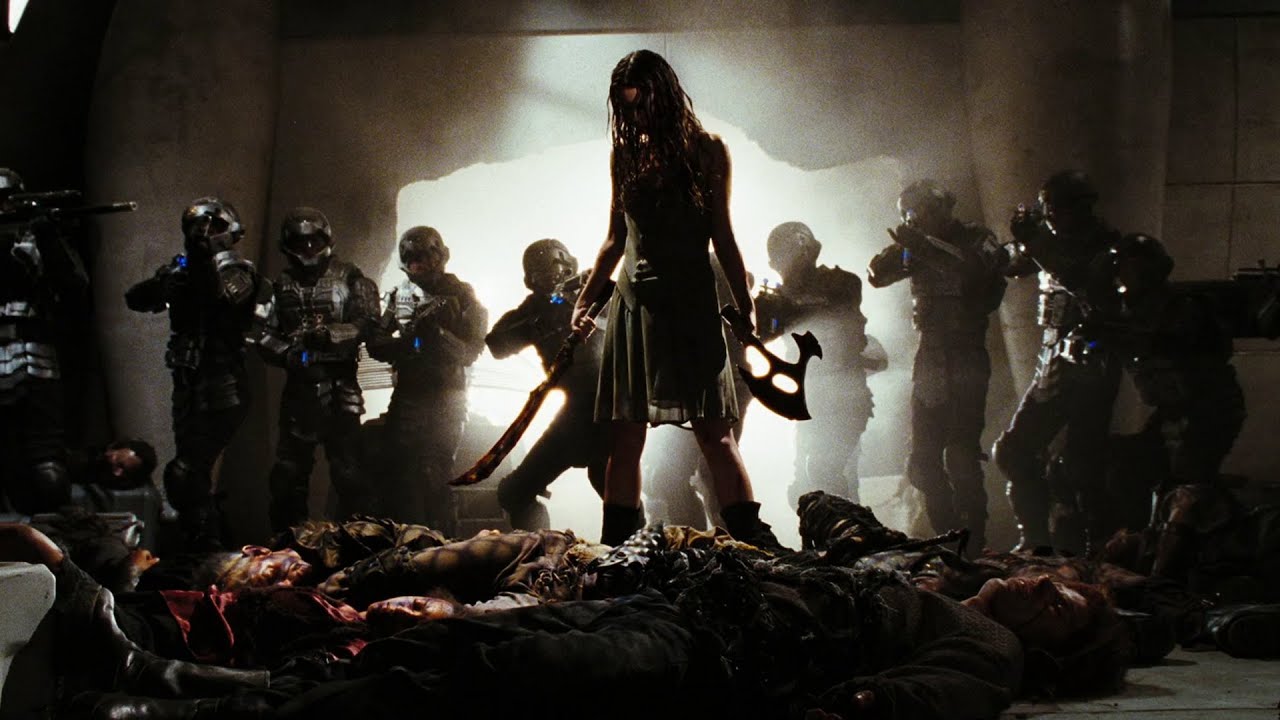
A precocious child with a gift for dance, River is transformed into a weapon in a shady government facility. Her brain is sliced and diced in order to unlock psychic powers but at the cost of her emotional regulation. Despite her fearsome intellect, precognition, telepathy, and ability to fight off multiple attackers, she is something precious and fragile, needing the protection of her brother Simon (Sean Maher) and the guidance of Malcolm Reynolds (Nathan Fillion).
Mal Reynolds: When I took you and your sister in, the deal was you keep her in check. You can’t hold up your end, we’re gonna have to revisit the deal…. She’s getting worse, isn’t she?
Simon Tam: Yes.
As evidenced in the Firefly episode ‘Ariel’ (S1, Ep9), at best, this grown woman is presented as a child, and at worse, an object to be hidden from danger, coveted by wrongdoers, or used in battle. She has all of the powers, but none of the power.
Clarissa Mao in Comparison
Viewed from the outside, Clarissa Mao has some shades of River Tam.
In her life before The Expanse, Clarissa was a child of privilege, beautiful, smart, and cultured. Events come for her and she is reborn as a super-powered instrument of death under the name Melba Koh, who eventually finds her people and place in the world as Peaches. A name for each part of her life. She’s a survivor of male emotional abuse, a victim of male ambitions, and embarks on a path of redemption under male tutelage, in this case, fan-favorite misanthrope Amos Burton (Wes Chatham).
These similarities exist only in the broadest brushstrokes. Down in the details, Clarissa Mao isn’t the latest in a dispiriting train of weaponized women, she’s a corrective. The weaponizing of Clarissa is one of her own choosing, an act of self-harm rationalized as a solution.
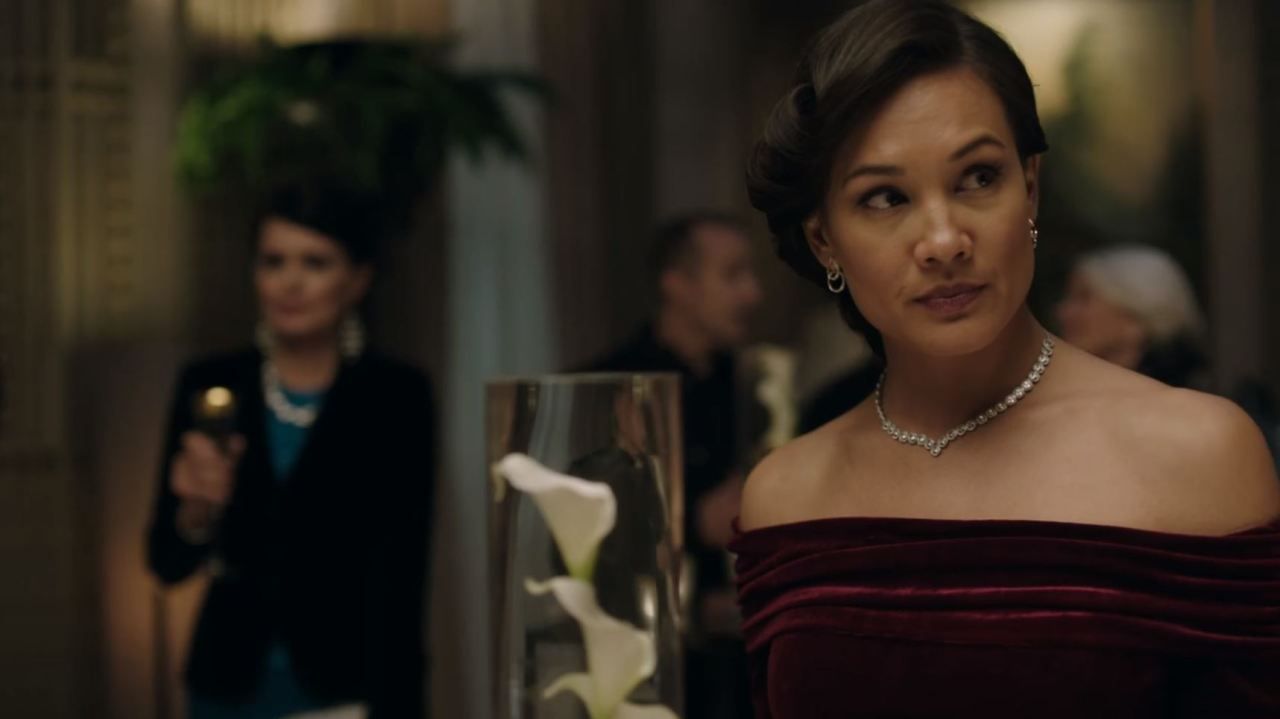
The respectable and responsible daughter of Earth industrialist Jules-Pierre Mao (Lost’s François Chau) and sister of idealistic wild child Julie (Agents of SHIELD’s Florence Faivre), Clarissa does everything that’s expected of her but somehow falls short, the key to unlocking her father’s love being Julie shaped. At the end of the first two seasons, Julie is dead, Jules-Pierre is jailed, and Mao-Kwikowski Mercantile has a reputation on par with Weyland-Yutani.
Her entry into The Expanse Season 3 is informed by a toxic family, an unreachable and unreasonable father, unresolved grief, and misdirected rage, but it’s her decision. If she is a weapon, then unlike River Tam or Echo or anyone else from the network Hall of Shame, she’s also the one pulling the trigger.
“It’s kind of rare when you get roles that are that emotionally intricate,” Nadine reflects, “and just in the darkest parts of our consciousness…
“She’s a human that really suffers and is always vying for the love from her parents that she never had, which is a very human struggle to have. We can all relate to that in some way and the length, she’ll go to try and feel worthy or validated.”
The Tragedy of Clarissa Mao
As relatable as some of those impulses might be, the role takes them to their farthest extreme. Part of the immense tragedy of the character is that Clarissa Mao is chasing something that simply doesn’t exist.
The events set in motion by Jules-Pierre Mao cannot be undone, her life of privilege cannot be restored, and her sister cannot be resurrected. If her father’s approval couldn’t be gained in times of plenty, how can it possibly be gained by holding James Holden (Steven Strait) personally responsible? How big would the pile of dead and disgraced James Holdens need to be to not only magically put everything back to how it was, but make it somehow better?
Though they’re different beasts, the novels give us an open window into something we can only guess at in the show – her thoughts. In the third book, Abaddon’s Gate (2013), we learn:
“There are no souls, Melba thought with a touch of pity. We are bags of meat with a little electricity running through them. No ghosts, no spirits, no souls. The only thing that survives is the story people tell about you.”
“I was scared of going there at first because that’s not something I’ve been used to doing on camera,” Nadine continues. “I’ve had other dark roles that have kind of prepped me for it a little bit. One was on the back streets of Hawaii, where she was a heroin addict, and she had a lot of trauma, drug addiction trauma, sexual trauma, so I had gone into dark places, but not so [dark] that it was homicidal. Going into it, the prep was, was not as challenging as I thought it would be.
“I myself have a really deep emotional well, and I’ve had my fair share of childhood adverse experiences and trauma. I understand shame, very deeply, and I understand grief, very deeply, and how lost you can be in it, and how much pain you can go through. Just allowing yourself to sit into Clarissa actually wasn’t that hard; imagining how lonely she must be, imagining how she would feel with her older sister getting all of the love from her father and her trying to prove herself so hard all the time, not ever winning.
“And then just giving, giving, giving for this false desire of what love is without ever stopping to understand how to give it to yourself.”
The Endocrine Enhancement Implant
Clarissa’s act of self-weaponization comes courtesy of an endocrine enhancement implant, a black-market body modification discarded by the military for its disastrous side effects. Once activated, it releases a chemical cocktail that overclocks the body’s natural hormone production – most likely epinephrine and norepinephrine (both produced by the adrenal gland) – slowing her perception of time, increasing her reactions and her strength substantially.
She breaks bones and snaps necks, seemingly in a state of dissociation, and then resurfaces retching as the hormones are flushed by her system and the stress – the fatigue, the pain – catches up. The steady erosion of the soul – what she’s prepared to surrender of her basic humanity in exchange for vengeance – follows hot on its heels, as she takes in the blood on the bulkheads and the buckled plate.
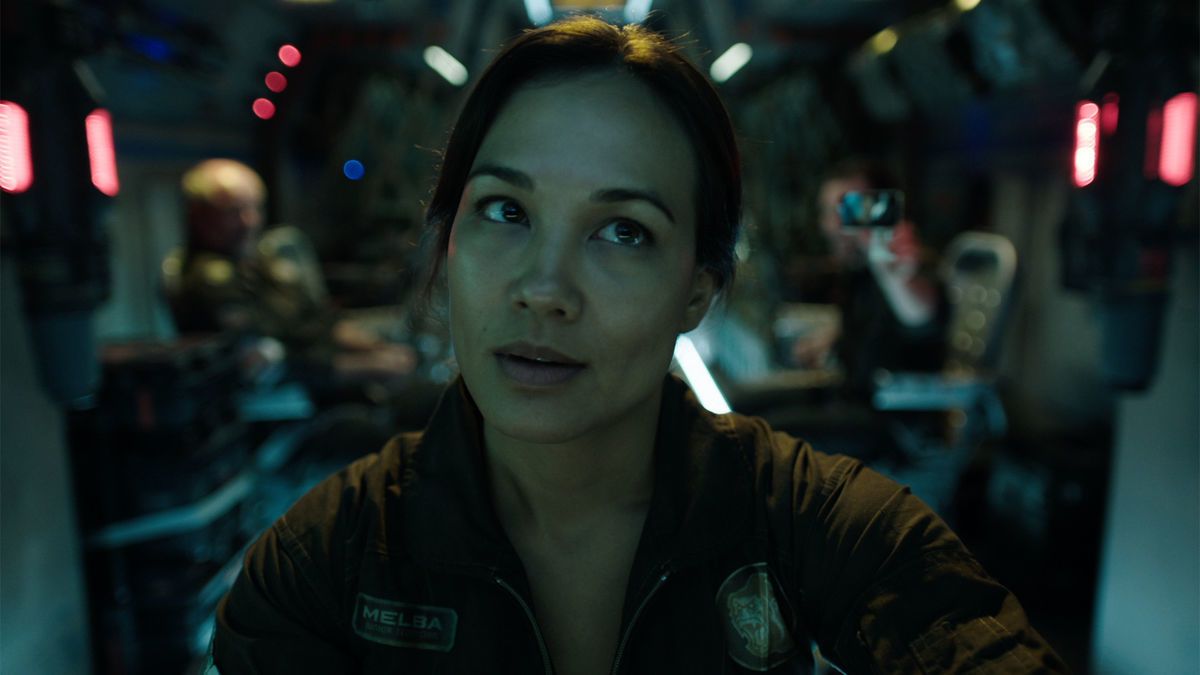
As with Clarissa herself, The Expanse pulls no punches in showing the ugliness of her path through Season 3. Undercover aboard UNN Thomas Prince as technician Melba Koh, in The Expanse episode ‘Delta-V’ (S3, Ep7) chooses to kill avuncular senior tech Ren Hazuki (John Kapelos) rather than abandon her plan to frame James Holden. She then hides the body (‘It Reaches Out’ – S3, Ep8), collapsing Ren’s already cracked skull in order to stuff his shattered remains behind a panel.
“There’s a lot of blood and dirt and physicality,” says Nadine. “That was that’s what made me kind of nervous at the beginning as well, like okay, so how does this really harm Clarissa, the modifications in her body when she’s triggered and everything’s firing? How does that physically show up or physiologically, what’s happening in the body? How big is it?”
The visual language of Clarissa’s fight scenes stands apart from almost everything else in The Expanse, save the luminous savagery of the Protomolecule Hybrids but they’re in an entirely different weight category. Like a zero-G Oldboy (2003), it’s more brute force than ballet, but on-screen it looks incredible.
“[We were] trying to make these physical mannerisms to match something that looks good for the camera, but is real, and based on the physics, so that was kind of hard. I leaned on the directors to help guide me through that and try different things. There was just a lot of blood, a lot of vomit, a lot of dirt, [and] a lot of laying on the ground. We would use wires and stuff, a lot of stunt choreographers, and just the gimmicks and the whole shebang. It was fun. It was really fun, to be able to play on wires to like whether you’re throwing someone, jumping across to Ashford [in ‘Abaddon’s Gate’ (S3, Ep13)] when he was about to shoot them, and banging his head into the glass.
“That was really fun,” she admits. “It’s a big learning curve. It was challenging, but I loved it.”
Clarissa’s Lowest Point
Clarissa’s rampage as Melba Koh is finally curtailed in The Expanse episode ‘Fallen World’ (S3, Ep11), coming no closer to ending Holden’s life than menacing Naomi in the cargo bay of Rocinante.
Nearly killed by Amos – only the pacific Reverend Doctor Anna Volovodov (Elizabeth Mitchell) stays his hand – she laughs at the bitterest of ironies as she finds herself caged mere meters from Holden, who benignly introduces himself to his new neighbor across the hall.
Mania gives way to despair.
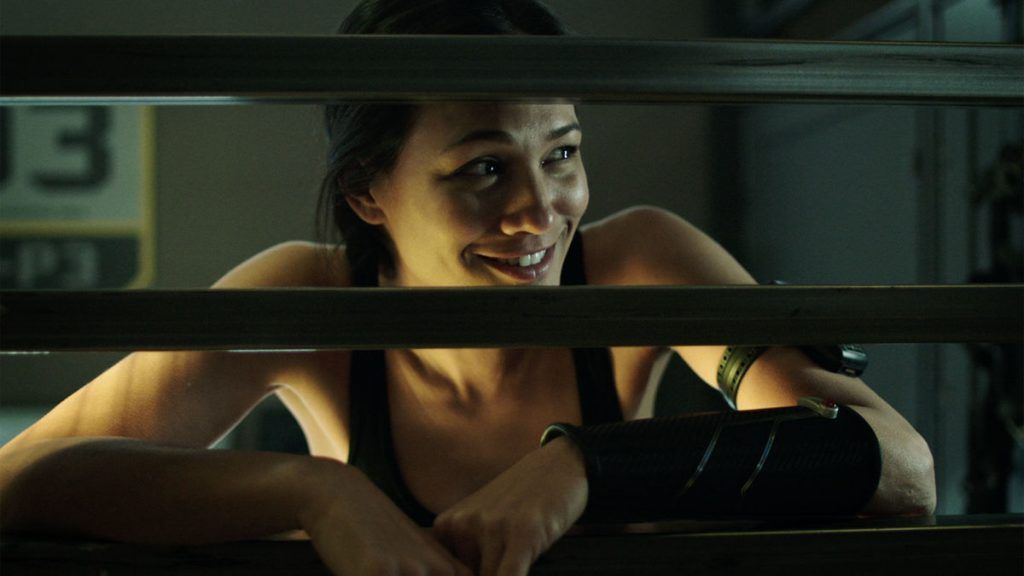
Imprisoned and hooked up to a chemical inhibitor that declaws her of the endocrine enchantment implant, she is confronted in ‘Congregation’ (S3, Ep12) by both the visiting Anna and the gruesome specter of just how far she has fallen. A fundamentally good person who has fought so hard to believe in the fundamental good of others, the pastor admits that Clarissa alone falls outside of her enormous capacity for compassion:
Anna Volovodov: When Amos offered to kill you, I wanted to let him.
Clarissa Mao: Why didn’t you?
Anna Volovodov: I keep looking for a way to care about you. I think, “Her father was a terrible person.” But a lot of people have terrible parents, and… I think, “Well, she’s clearly a damaged person,” but then… “Who isn’t?” So, I’m down to, “Maybe she has a brain tumor.” Do you have a brain tumor?
Clarissa Mao: No.
Anna Volovodov: It wasn’t mercy. It was vanity. I didn’t want to think of myself as someone who wanted vengeance.
Clarissa Mao: Are you asking for my forgiveness?
Anna Volovodov: No.
Clarissa Mao: You’re a coward. You should have let him kill me.
Anna Volovodov: You don’t get the easy way out.
This, right here, more than even the collapse of her world is Clarissa Mao’s lowest point. However, it’s all here at the end of Season 3 that Clarissa enters into the relationship that ultimately leads to her redemption, both in her own eyes and in the eyes of those she hurt most.
As Anna says, this isn’t the easy way out. As the season ends, Clarissa – who took an opportunity to make a positive difference by preventing Klaes Ashford (David Strathairn) from firing Behemoth’s communications laser (like Clarissa herself, the communications laser wasn’t intended to be a weapon) at the ring gate – is sent to Earth to see out a life sentence for her multiple murders.
Gone, but we are given no reason to forget her. At the start of Season 4 (‘New Terra’ – S4, Ep1), Clarissa makes an expected video call to Amos to thank him for his kindness on the long slog back to Earth. This call – and the nickname Peaches (as in, peach melba) – offers the distant glimmer of a guiding star through the darkness of space.
Peaches and Amos in The Pit
Chrisjen Avasarala: Misery loves company.
Admiral Delgado: So does hope.
A good while later, Amos returns to Earth – to the Baltimore streets of his youth – to lay some ghosts to rest. This harrowing arc taken in part from James S. A. Corey’s 2014 novella The Churn explores the characters’ childhood abuse and escape. With Amos now loosely on the side of the angels, not entirely able to make moral decisions but able to see whether the decisions of others are moral and align himself accordingly, we get a panorama of just how far he’s traveled from victim to survivor, to underworld enforcer, to volatile drifter, and finally, to hero.
Armed with this perspective, in ‘Gaugamela’ (S5, Ep4) Amos visits Clarissa in her subterranean supermax, the Pit. Safely below ground when Marcos Inaros (Keon Alexander) drops the first of his asteroids (another unassuming weapon) on Earth, in ‘Down and Out’ (S5, Ep5) two fight their way to the cold grey skies of the surface making Clarissa’s escape from the underworld as literal as it is metaphorical.
The shared experience we saw so briefly last season is laid bare by their discussion and their journey back into the light. It would have been easy for the writers to belittle and demean Clarissa’s experience as the ‘daddy doesn’t love me’ self-indulgence of a ‘spoilt rich girl’ in contrast to the ‘worthy’ pain of Amos’s abuse, but brain chemicals aren’t that picky. Trauma doesn’t discriminate and neither does Amos – he simply sees something he recognizes in the broken young woman striving to find her way out of hopelessness.
“Even though there might be big, epic, heroic action settings, to see them as individuals and really go into their backstories and feel where they’re coming from, there’s always a reasoning behind why we do what we do. Trying to empathize and really hold space for the dark is the first step of grieving, for us communally.
“Clarissa and Amos help [to] shine that mirror,” Nadine continues, “that anyone can go through it. Whether you’re in poverty, or you’re in massive wealth, it’s something that can show up for all of us and we all deserve to learn how to heal it and be around people that will help guide us. No matter how dark it gets, there are always cracks of light that will shine in [and] will help you get out. There are transformations and awakenings available though they might not be perfect for what we were looking for. There are ways through it with self-acceptance and compassion.”
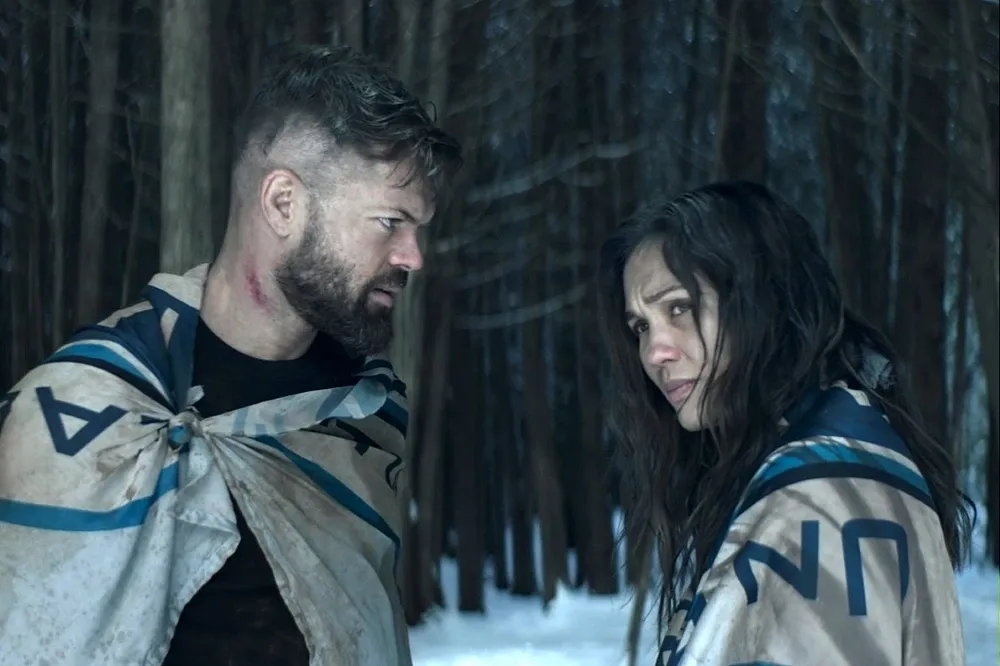
Freed from the Pit, in The Expanse episode ‘Tribes’ (S5, Ep6) the two set off across the scarred landscape more than a little reminiscent of The Road (2009) desperately searching for shelter. They encounter grimy survivors and Peaches is forced to activate her mod to kill an armed survivalist who is defending his cabin with lethal force.
Two exchanges over this episode harden the bond between them. The first is about parents – Clarissa has a father who was alive but wasn’t present, whilst Amos’s thoughts of his adoptive mother figure still loom large and the discussion prompts a realization:
Amos Burton: I did have someone… who tried to take care of me. She died not too long ago.
Clarissa Mao: She showed up… so she’s a parent that actually existed. I don’t mean to make light. I’m sure she’s a really good person.
Amos. Burton: She lived like she was.
Clarissa Mao: What does that mean?
Amos Burton: There are ways that you can live a good life… without being a good person.
Clarissa Mao: I like that.
Once Peaches recovers from her latest adrenal overdose, she returns to the theme, revealing a poem that she composed in prison as she contemplates this latest ugly notch on her soul:
“I have killed… but I’m not a killer, because a killer is a monster and monsters aren’t afraid.
“I’m afraid all the time… of the things that I did, how right it felt when I was doing them, how certain I was.”
If you can do good things without being a good person, then you can also do bad things without being a bad one. Independently of one another, this mantra has led both Amos and Clarissa toward a single point. They don’t have the moral certainty – or moral crutches – of the others: Holden does bad things out of principle, Naomi out of love, Bobbie out of duty, and Avaserala in service of the greater good.
Revenge proved a poor polar north for Clarissa. Amos is one step ahead on his journey, he knows he can’t be ‘a good person,’ but perhaps he can do good things.
Perhaps she’s the good thing.
“We just kind of talked about how the broken parts of each character fit together,” says Nadine of creating that bond. “Amos has his tribe on the Roci, and they’re his family and Clarissa has no one, but it only takes one person to make you feel seen and to start healing. I think Amos – since he’s been through so much – he knows what his mother figure did for him, what his family did for him, and that he now has an opportunity to be that for someone else, [someone] that no one else is going to reach out to [and] no one else is going to help save.
“And so that, in turn, helps him reflect and self-actualize even more and go forward on those next steps on his journey of self-awareness and self-empowerment.”
Peaches Finds Her Tribe
That this courtship (for lack of a better word) of kindred spirits happens in an episode called ‘Tribes’ is fitting. The nature of tribes is one right at the core of The Expanse as characters are forced to navigate the contrasting and overlapping loyalties to friends and family, planet and asteroid of origin, ideology, and faction, or the human race as a whole.
Their old tribes have been found wanting. Amos has had his faith shaken by Naomi’s betrayal and Peaches was chasing a place within her family that eluded her. She found a brief measure of acceptance first with the UNN techs and then with Klaes Ashford, but ultimately betrayed both. Amos – who once had to be talked out of killing her – represents a second chance. He tells her:
“I grew up like this. Everyone else is just playing catch-up. People are tribal. The more settled things are, the bigger the tribes can be. The churn comes, and the tribes get small again. Right now, you and I are a tribe of two.”
“In Season 3, Clarissa was just this undercover tech or engineer that didn’t have any real friends,” continues Nadine. “No one really knew who she was she was really just doing this on her own and out of vindictiveness. So when you go into Season 4, when she’s in jail, she built a little bit of a relationship with Amos already. On the way back to Earth, they’d spent months together and already spent a lot of time learning how to be a mechanic under him. So when he comes in Season 5, and they go on their escapade, it works in the writing because of the relationship that Amos and Clarissa have which is just adorable. It’s enchanting.”
Nadine’s choice of words is indicative of what is a genuinely anomalous relationship in science fiction. It’s a love story in the way that these two souls find each other and complete one another – each giving the other hope that the world can be better – but it’s entirely aromantic.
“[There’s] these two broken people that are just so physically fierce, murderous and likable, and they are leaning on each other in this really genuinely cute way.”
At the close of Season 5, the tribe of two rejoins Rocinante and slowly the tribe becomes one. Admittedly, Clarissa is a hard sell as a crewmate, but Amos has a stony gaze capable of shutting down even a conversation that vital, and Peaches is willing to put in the work.
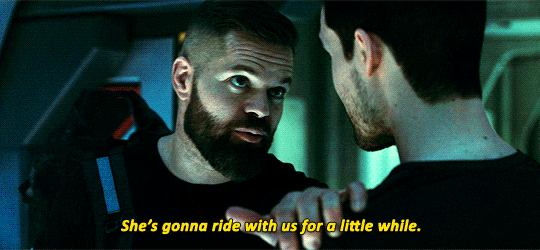
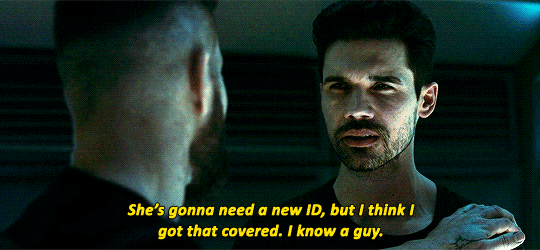
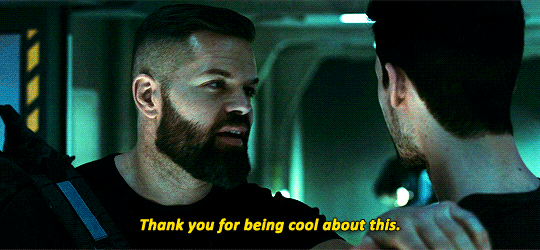
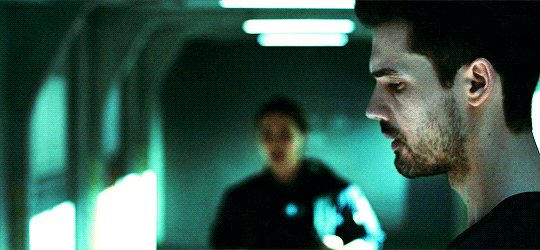
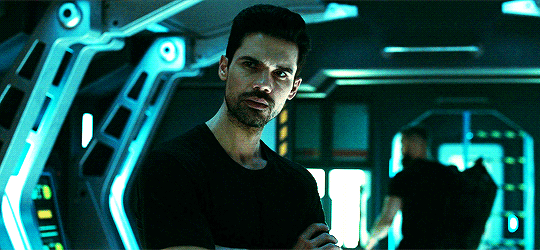
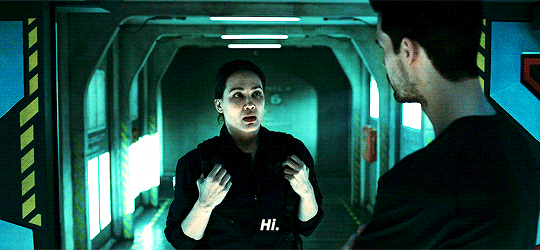
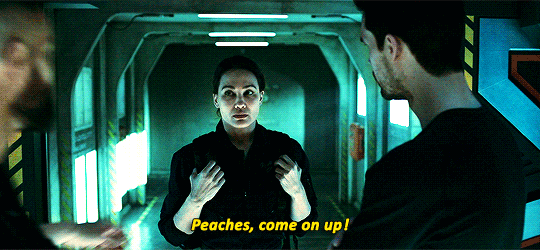
When Naomi’s own trauma causes her to disassociate during their raid on the Free Navy’s intelligence-gathering ‘rock-hopper’ Azure Dragon in the episode of the same name (S6, Ep2), Peaches takes up the slack. She covers for the visibly distressed Naomi and leaps out into the abyss to activate the EMP in Naomi’s place. As the Free Navy crew pop the hatches and open fire, she activates her mods to take out an attacker sneaking up on Bobbie, ripping his helmet off before vomiting inside her own.
She’s recuperating in Roci’s medbay with Amos when Holden enters to reprimand her. Amos stays by her side, and with a half-shrug, Holden continues with his righteous mission of confronting a woman who can rip his head off and the man who would cheer her on. It’s one of those perfect scenes that perfectly speaks to each of the three characters, their respect for one another, and the manner in which their individual values seem to slot together like Tetris blocks.
It’s also a key character moment for Peaches.
James Holden: You mind if we talk?
Clarissa Mao: Sure. Go ahead.
James Holden: This is partly my fault. The only real reason I let you stay aboard was as a favor to Amos. And that’s how I’ve been thinking about you, as an obligation.
Clarissa Mao: I understand.
James Holden: I don’t think you really do. I know you were trying to help. But we had a plan, and when you changed that plan without going through the chain of command, you put all of us at risk. I’m the captain of this ship, and as long as you’re part of the crew, you do what I say when I say. If you see a problem, you talk to me first so everyone knows what’s going on. No more deciding for yourself what the new plan is.
Clarissa Mao: I get it. I’m sorry. It won’t happen again.
James Holden: Good.
Holden exits and Clarissa laughs
Amos Burton: You know you just got chewed out, right?
Clarissa Mao: That’s the first time he said I was part of the crew.
“In the medbay, Clarissa has just been vying for their attention and to be worthy,” Nadine explains. “And I think that just even being acknowledged by Holden as the crew is such a big deal for her. She knows that she is being forgiven. She’s on the path to forgiveness and trying to redeem herself, and it’s looking up. So from the past and everything she’s been through those moments mean so much to her. And then, having Amos right by her side, like, ‘Yep’, thinking that Amos would get up and leave [so Holden could] to talk to Clarissa privately and he was like, ‘No, I’m gonna sit here. This is my girl.’
“That looks says: whatever you can say to her, you can say to me.”
“Too Bad She Won’t Live, But Then Again, Who Does?”
Clarissa’s story doesn’t end with the final episode of The Expanse Season 6. Rather, the end of the show reflects a line break in her journey. She collapses alone and makes her way to the medbay where the auto-doc delivers a death sentence: Complex Endocrine Collapse syndrome. She has five years and every time she uses her mods, that timeline shortens.
She sits with it. And then she makes dinner. Over the course of ‘Babylon’s Ashes’ (S6, Ep6)’s climactic final third she earns the final piece she needs to move on. Not Naomi’s forgiveness so much, but the permission to start earning it. As Rocinante leaves Ceres, she presents Amos with a shiny silver Oni head pin to replace the one he lost in The Pit, before lifting the collar of her flight suit to reveal her matching one.
“There’s a lot of gratitude there,” says Nadine. “As we were talking about the shame earlier when that starts getting lifted, and you start feeling like you belong, you know, and that you’re supported. Making that pin for Amos was, was a sign of ‘Thank you. You were that one person that lifted, Clarissa up and gave her that chance. You’re the one person to help see her and walk her through.’ What a beautiful moment.”
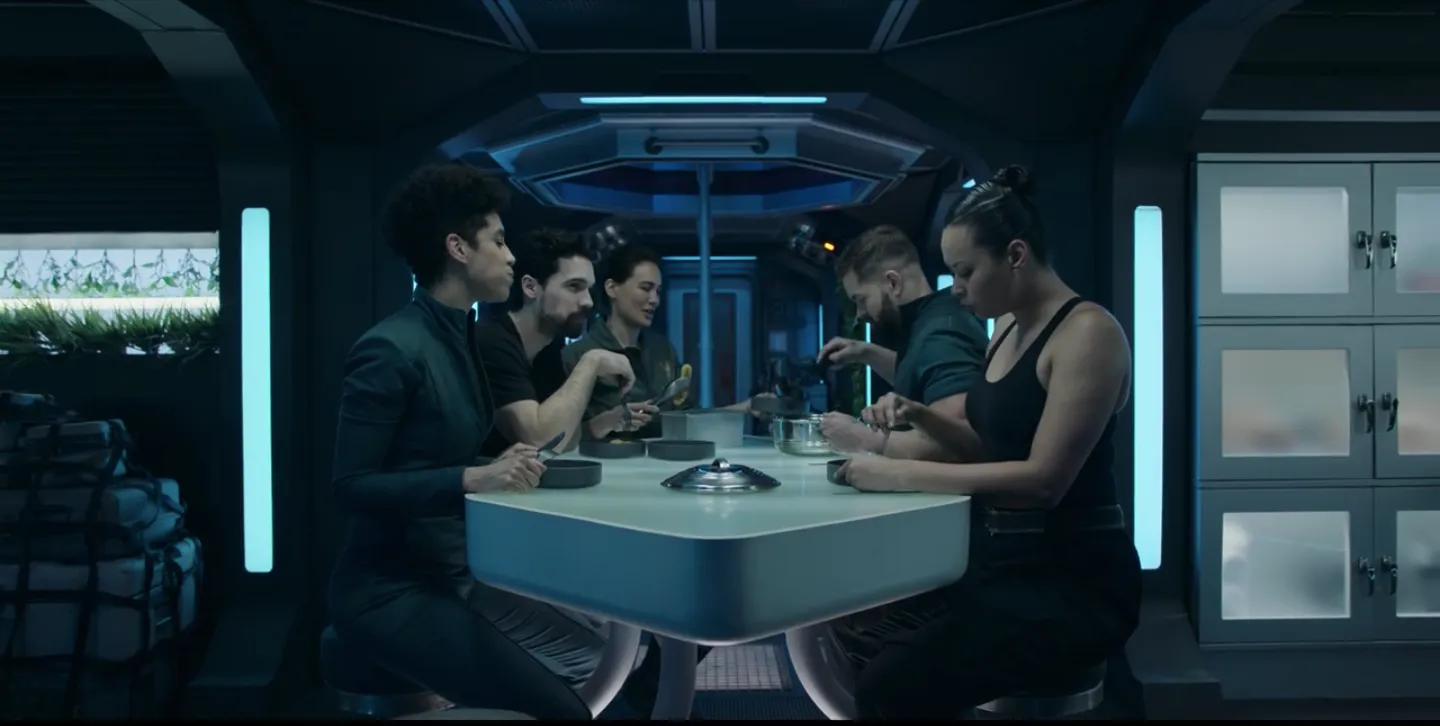
There’s an echo of Blade Runner (1982). Clarissa like Sean Young’s Rachael has a future with a strict time limit, but rather than bittersweet, there’s simply a joy. Clarissa knows all of this was extra time – a gift. The path she had originally chosen should have ended long ago.
“It’s her second chance,” Nadine agrees. “You just have to really relish in it as much as possible. This wasn’t supposed to have happened that way in her head.”
Amazon Prime might be done with The Expanse, but once upon a time, Syfy was done with The Expanse too. With Telltale Games adding their own chapter to this universe in the near future, as well as the forthcoming graphic novel, Dragon Tooth, we can always dream of those next five years that the autodoc promised.
“I think there’s always work to be done,” says Nadine of the character’s future. “Even though she’s found a new tribe, and she’s starting to feel a sense of belonging, and support, just mutual love and care, there’s still work to be done. And there’s always going to be a part of her that she’s curious if deserves to be forgiven, that she feels that she will need to remember to just try and stay on the path of goodness or light, or positivity because deep down, there’s so much has happened with her that she doesn’t want to make keep making the wrong decisions or doing the wrong things.
“And like Amos, he needs his tribe to keep him on that path and when he gets away from Holden, he is like, ‘I don’t know if what I’m doing is the right choice.’ And so I think, there’s part of Clarissa she thinks will always be a bit broken, and that she will have to redeem herself for and try and make up for. We’ll see as she grows on her path if that really stays that way in her mentality. She doesn’t have that many years left now. I think it’s about, cherishing these moments, cherishing her tribe, trying to do what she can to justify her purpose, and moving forward.
“And you know, make some more dinners. Eat a lot of salt.”
This interview was first published on March 2nd, 2022, on the original Companion website.
The cost of your membership has allowed us to mentor new writers and allowed us to reflect the diversity of voices within fandom. None of this is possible without you. Thank you. 🙂


